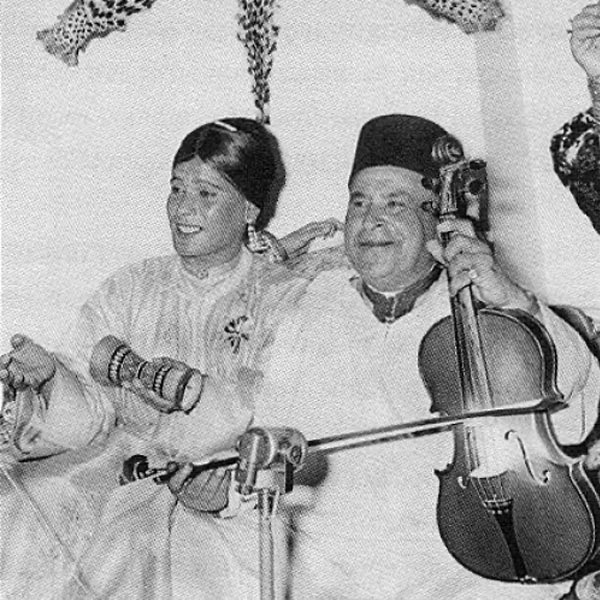Emblematic figure of Casablanca in the 1950s and 1960s, Zoubir Bouchaib Bidaoui was born in Derb Dalia, in the old medina, in 1929. Coming from a modest family from the outskirts of the city, he is one of the children enrolled in the one of the first modern schools in Bousbir Lakdim. In 1948, he obtained an accountancy certificate, which enabled him to be hired by a French lawyer close to the nationalist movement. Although he listens to songs from the period, his real encounter with “Al Ayta” dates back to when he worked in a dry cleaners. By taking care of the Benjdia caftans and jellabas, he meets the Patriarch, who invites him to the big parties organized by the family, to which the great Sheikhs and Chikhats of the time are invited. In love with the rhythms and songs of this blues from the Atlantic plains, he would not miss the evenings of Laârjounia for anything in the world, known for her mastery of Mersaoui and Hasbaoui and for her fatal beauty, and of her colleague Hajja Rouida, whose one of the first recordings dates back to 1934 at Baïdaphone. Mastering the Târija, he ended up being part of the latter’s troop, along with Khaddouj Bent Loukid, Zohra Tchikito and Bent Lakhila. The group begins a great work of revaluing the Mersaoui repertoire by resuscitating the old Ayta, dusted and brought up to date.
Bouchaib, who has become an essential name on the scene, is launching his own troupe with Mohamed Kibou, alias the Maréchal… violinist, Bouchaib Ould Zliga, lute virtuoso, and Milouda Bent Dernounia. The group begins a great work of revaluing the Mersaoui repertoire by resuscitating the old Ayta, dusted and brought up to date. Her collaboration with playwright Bachir Laalej, playing female roles alongside Kadmiri, Souiri, Lahrizi and Boujamâa on the weekly “Idhak Maai” radio program, only heightened his notoriety.
The recordings are not long in coming. The 45s vinyl are sold like hot cakes and the city public hums the “Rkoub lkhail”, “Ma chtou lghzal”, “Kharboucha mannana”, “Lhaddaouiyat”, “Rjana f’laali” … Polysemic texts in which he introduces verses alluding to the Occupation, before composing his famous “Khoutan ya lislam”, a patriotic song in homage to the resistance of “Oulidat Chaouia”.
The one who illuminated the nights of the Coq d’Or, the stages of the Medina, Verdun, Al Kwakib cinemas … the space of the Arenas and the municipal theater, a first for a popular troupe, died on May 25, 1965 in hospital Avicenna of Rabat in destitution, oblivion, total anonymity and general ingratitude! Bouchaib Bidaoui was barely 36 years old.

